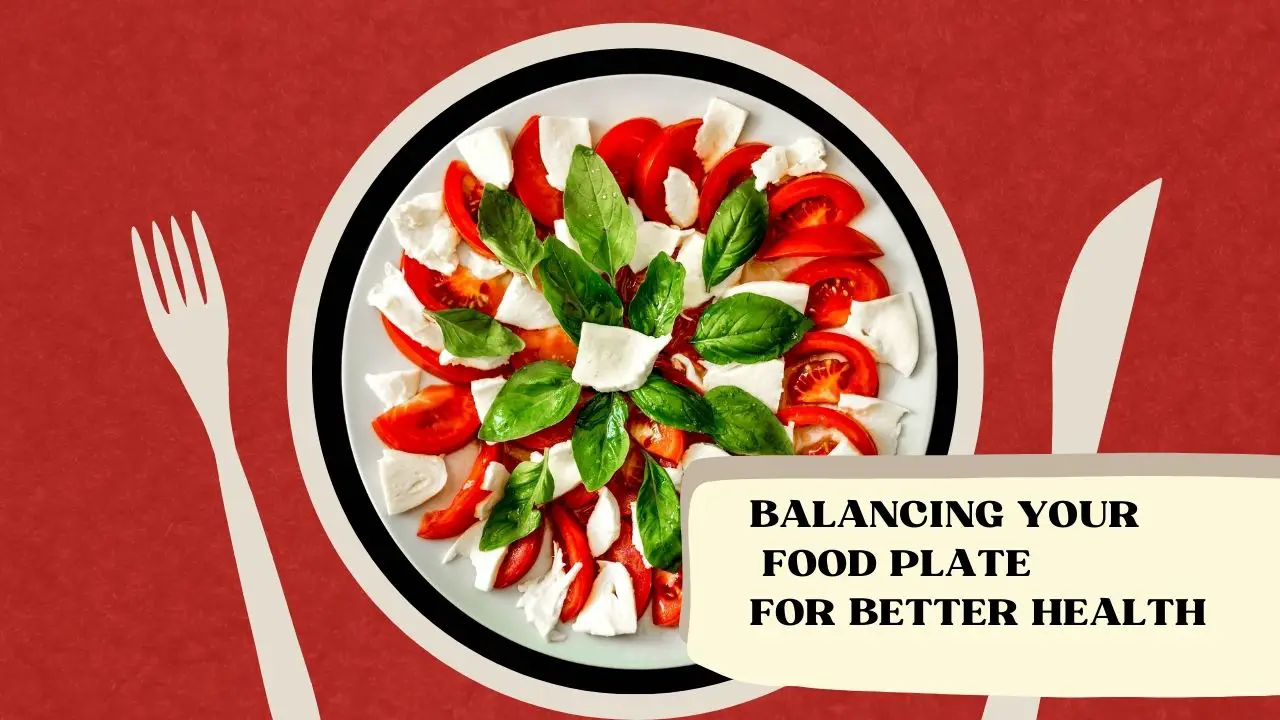Physical Address
304 North Cardinal St.
Dorchester Center, MA 02124
Physical Address
304 North Cardinal St.
Dorchester Center, MA 02124

Balancing your food plate is an essential step toward achieving better health. The food choices we make can significantly impact our well-being, from energy levels to overall longevity. By understanding how to create a well-balanced plate, you can provide your body with the nutrients it needs to thrive. In this article, we'll explore the importance and elements of balanced eating to help you make healthier choices.
A balanced food plate ensures that you consume a wide variety of foods, providing your body with a broad spectrum of essential nutrients. This helps prevent nutrient deficiencies and promotes optimal functioning of bodily systems.

Properly balanced meals supply your body with the energy it needs to perform daily activities efficiently. A balanced plate helps maintain stable blood sugar levels, reducing energy crashes and fatigue.

Balancing your food plate by controlling portion sizes and including nutrient-dense foods can aid in weight management. It helps prevent excessive calorie intake, which is a common cause of weight gain.
Consuming a diet abundant in fiber derived from fruits, vegetables, and whole grains aids in maintaining a healthy digestive system by averting constipation and encouraging consistent bowel movements.
Sufficient consumption of calcium and vitamin D, typically present in well-balanced diets featuring dairy products or non-dairy substitutes, promotes the strength and well-being of bones, mitigating the chances of developing osteoporosis.
Foods rich in nutrients like beneficial fats and antioxidants have the potential to enhance mood and cognitive abilities, thereby playing a role in fostering mental well-being.
Maintaining a balanced diet can decrease the likelihood of developing chronic ailments like diabetes, heart disease, specific forms of cancer, and high blood pressure. It bolsters the body's capacity to counteract inflammation and oxidative strain.
A diet that encompasses a diverse array of foods, abundant in vitamins and minerals, fortifies the immune system, enhancing the body's ability to ward off infections and illnesses.

These should make up a significant portion of your plate, ideally around half. Fruits and vegetables are rich in vitamins, minerals, fiber, and antioxidants, providing essential nutrients and promoting overall health.
Allocate a quarter of your plate to whole grains like brown rice, quinoa, whole wheat pasta, or whole-grain bread. Whole grains offer complex carbohydrates and fiber for sustained energy.
If you consume dairy, choose low-fat or fat-free options. For those who prefer non-dairy alternatives, options like almond milk or soy yogurt can be suitable.
Although not part of the plate itself, staying hydrated with water is crucial for overall health. Avoid excessive sugary drinks and limit alcohol consumption.
Pay attention to the amount of food you eat to avoid excessive consumption. Employing smaller plates and being attuned to your body's signals of hunger can assist in achieving this goal.
In conclusion, achieving a well-balanced food plate is a crucial foundation for improving your overall health and well-being. By including a diverse range of nutrient-dense foods in the right ratios, you can boost your energy levels, effectively manage your weight, and lower the chances of developing chronic illnesses. Keep in mind that adopting a healthy eating pattern is a lifelong commitment, so prioritize sustainable dietary changes that you can uphold over the long term. With a balanced plate, you're taking significant steps toward a healthier and more fulfilling life.
Yes, children can benefit significantly from a balanced plate. Parents can set a good example, involve children in meal planning and preparation, and offer a variety of healthy foods to encourage balanced eating habits from a young age.
No, a balanced plate is about making mindful and sustainable food choices rather than following a strict diet plan. It's more about creating a healthy eating pattern that suits your lifestyle.
Tips include incorporating fruits and vegetables, lean proteins, whole grains, healthy fats, and practicing portion control. Meal planning and mindful eating are also valuable strategies.
When dining out, look for menu items that include a balance of protein, vegetables, and whole grains. Ask for substitutions or adjustments if needed to create a balanced meal.
Counting calories isn't necessary for achieving a balanced plate. Instead, focus on the quality and variety of foods you consume to naturally control calorie intake.